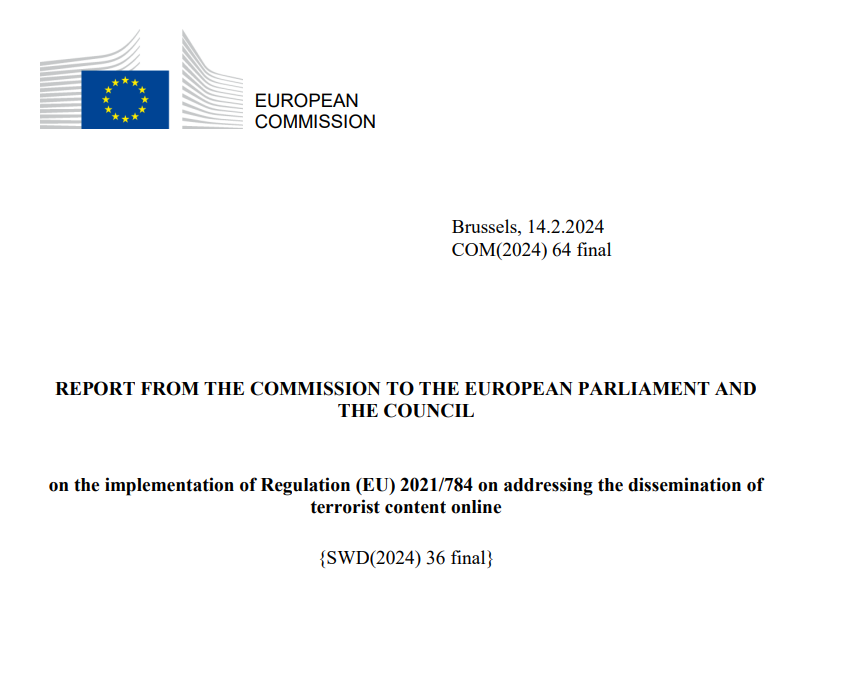REPORT | The FRISCO Project was officially highlighted in a European Commission report
Our work was recently highlighted in a European Commission report published on the 14th of February 2024 – Report from the Commission to the European Parliament and the Council on the implementation of Regulation (EU) 2021/784 on addressing the dissemination of terrorist content online (available here).
The major findings stemming from our mapping report are presented as such :
“In its mapping report, the FRISCO project found that micro and small hosting service providers tend to have very limited awareness and knowledge of the Regulation and underlined potential difficulties they could face in responding to removal orders within one hour, as they often lack 24/7 services. Lack of resources is a challenge, as well as establishing lines of communication with law enforcement agencies. More than half of the hosting service providers surveyed by the contractors do not moderate user-generated content and stated that they never encountered terrorist content on their platforms. These hosting service providers are likely to take ad hoc measures if such content appears on their platforms.“

The objectives of the project and our participation in the TCO Cluster with sibling projects ALLIES and Tech Against Terrorism Europe are also recalled :
“The Commission selected three projects to support [smaller hosting service providers in implementing the Regulation] with a threefold approach. Firstly, by informing and increasing awareness about the Regulation’s rules and requirements, secondly by developing, implementing and rolling out tools and frameworks needed to address the dissemination of terrorist content online, and thirdly by sharing experiences and best practices across the industry. The three projects began their work in 2023 and have already delivered valuable results. […] Through these three projects, small hosting service providers are being supported in their efforts to comply with the rules of the Regulation also by setting up points of contact and implementing mechanisms for users’ complaints”
